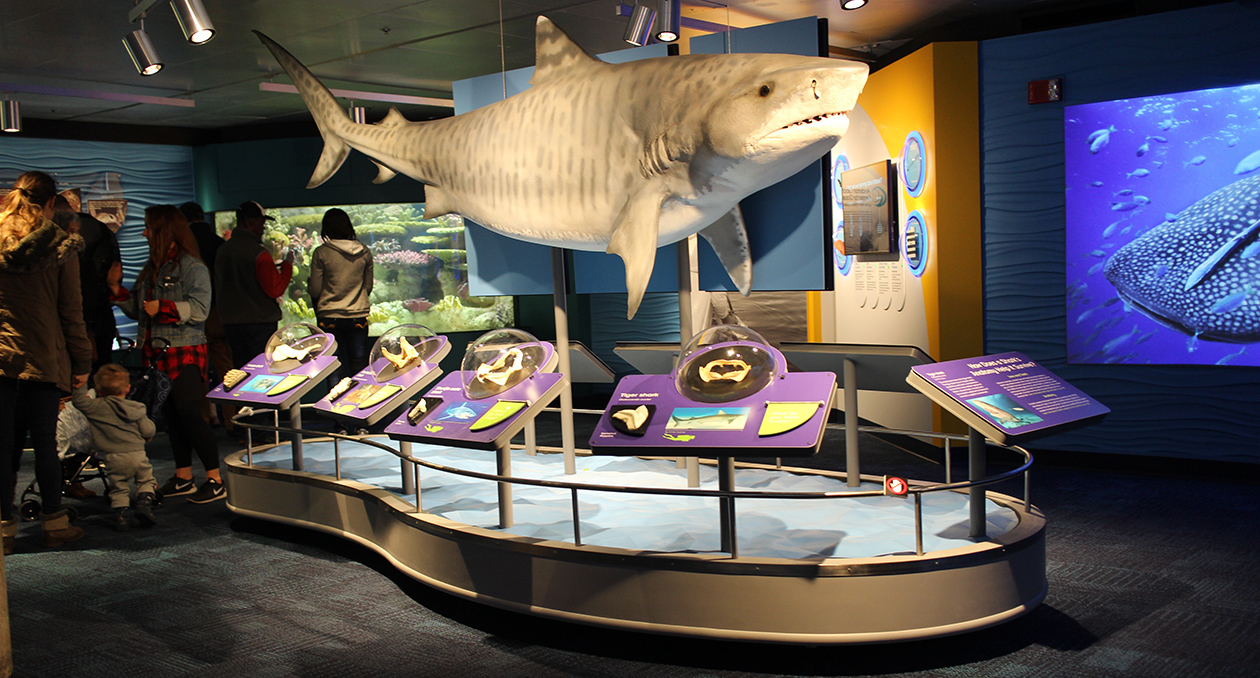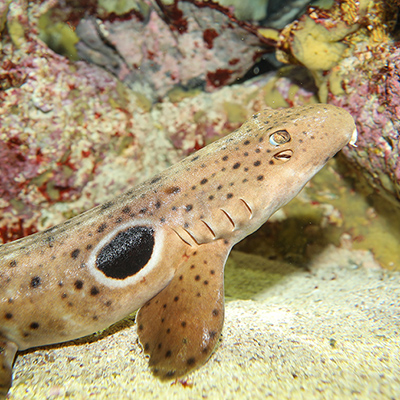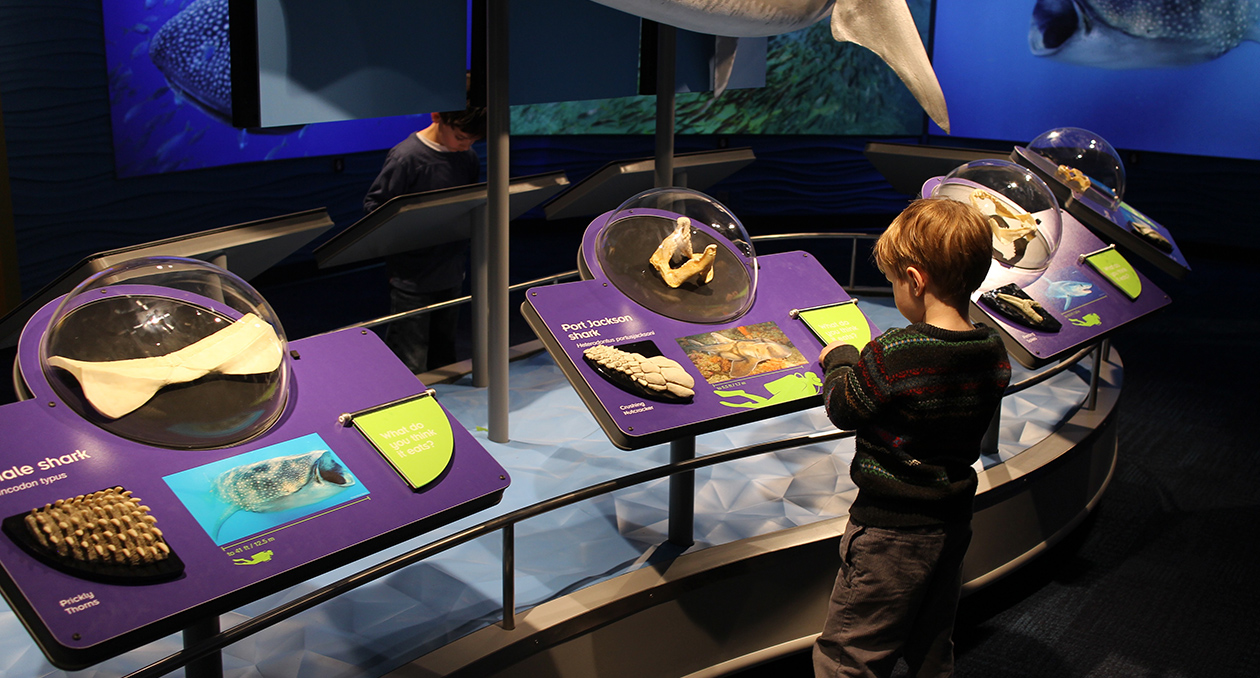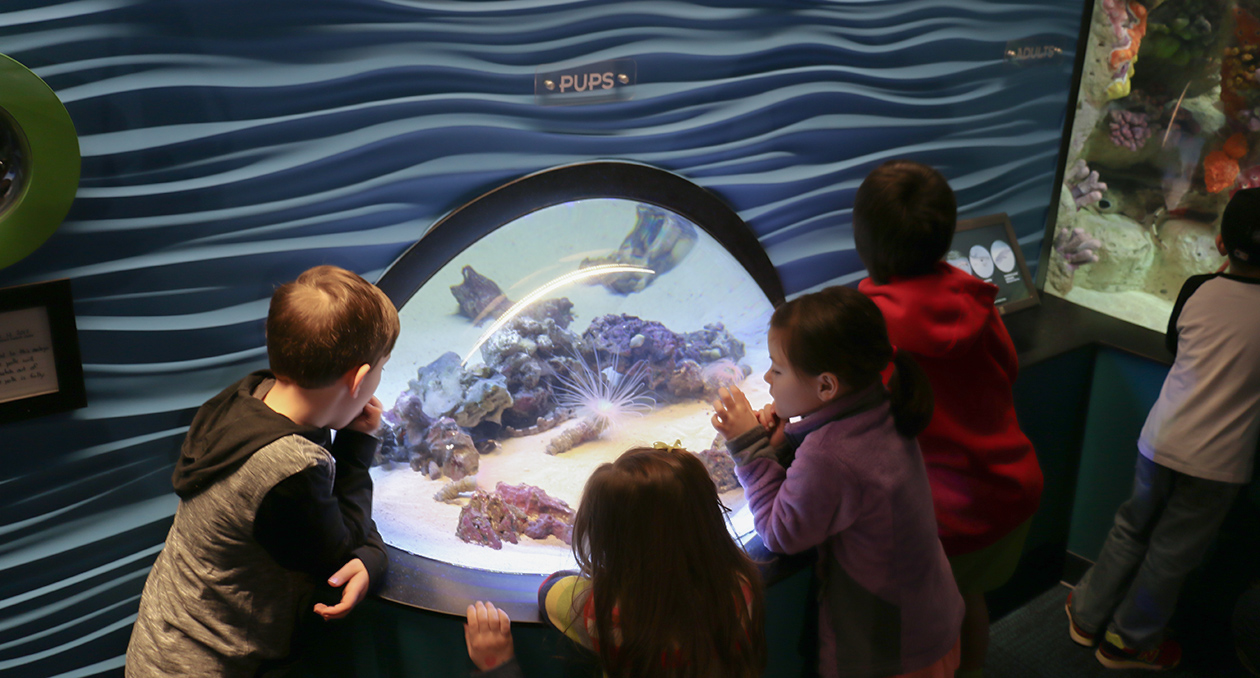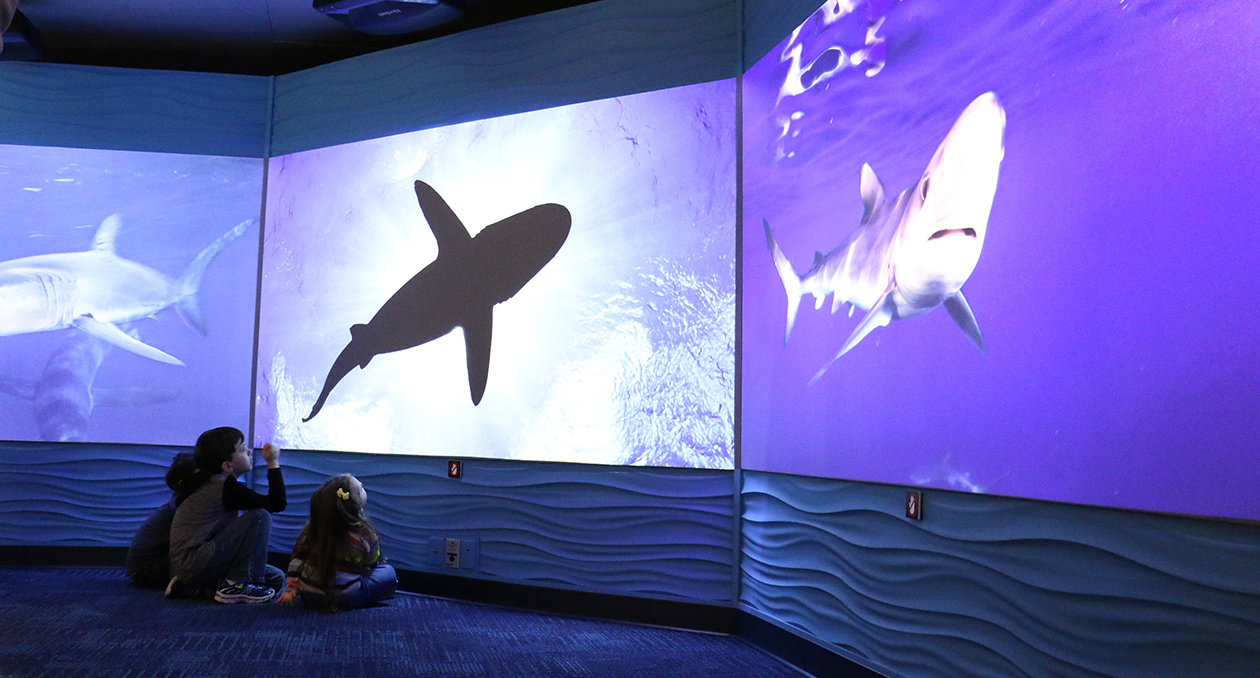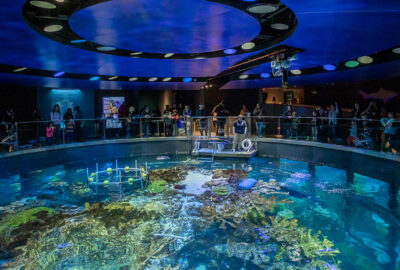Discover a new understanding and appreciation of shark species. Learn about the remarkable adaptations that give them an edge in the water and our researchers’ work studying them.
Know Before You Go
Watch a developing epaulette shark pup wriggle in its egg case, and see if you can spot a horn shark as you explore this exhibit.
- The sharks in this exhibit are smaller than many visitors expect, but they represent the majority of shark species: Of the 500 species, around 80% are about four feet long or less!
Animals in This Exhibit
Meet some of the sharks you'll find in the Science of Sharks.

The Diverse Oceans Sharks Call Home
From Indonesia to South Africa to Australia and beyond, different shark species have evolved to live in nearly every ocean environment. Though many people fear sharks due to their apex predator status, sharks play an essential role in ocean health and, by extension, human health.

Our Anderson Cabot Center for Ocean Life Studies Sharks to Save Them
More than 300 shark and ray species are threatened with extinction as of 2020 due to threats like overfishing and climate change. Among many other projects, Anderson Cabot Center for Ocean Life researchers evaluate the effects of fishing gear and practices on sharks and explore methods to avoid or decrease the harm caused by fishers accidentally catching sharks.
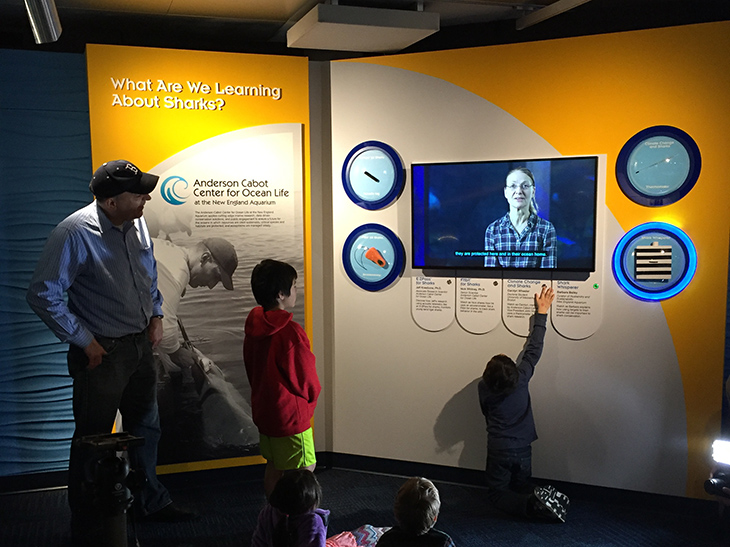
Take a Look Around
/
Explore More Exhibits

